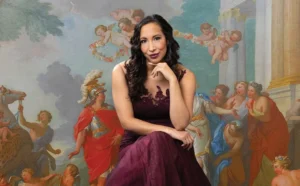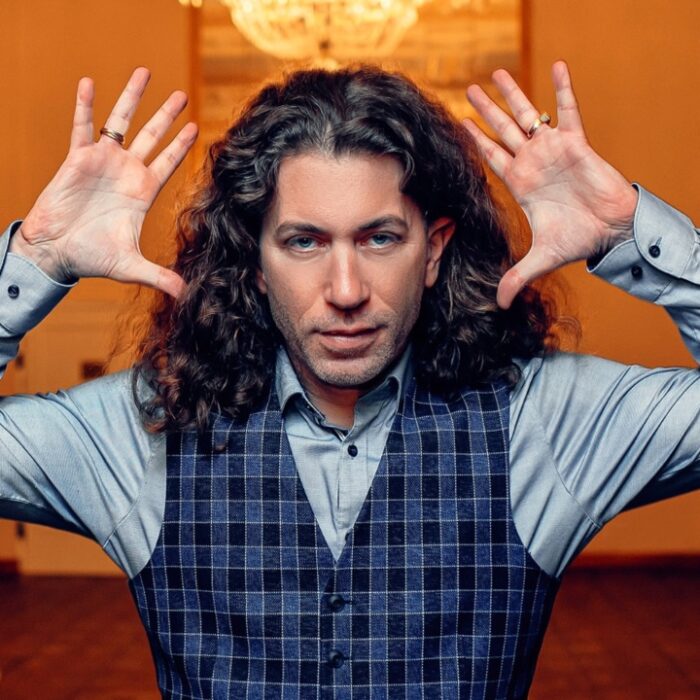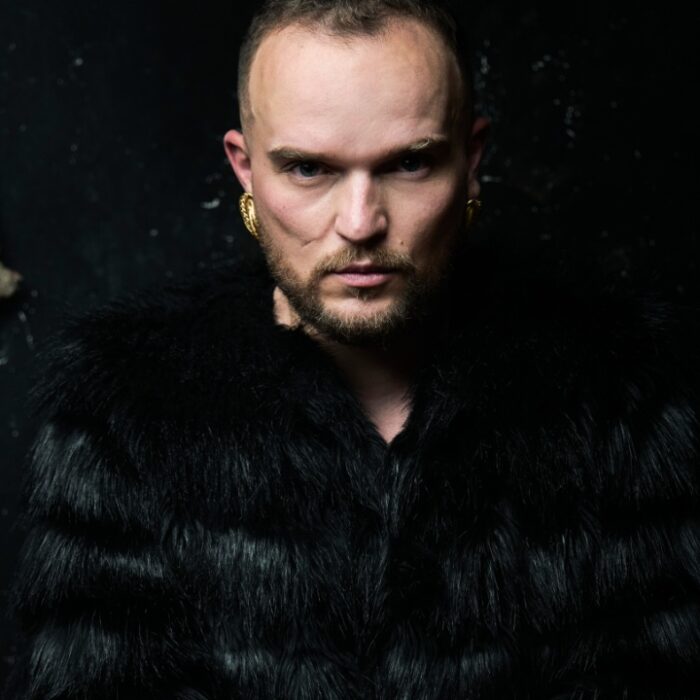
Q & A: Soprano Nicole Cabell On Her Return to Ravinia & Taking On Her Only Händel Role
By David Salazar(Photo by Devon Cass)
On August 24, 2025, Ravinia, in collaboration with Haymarket Opera Company, will present a performance of Händel’s “Alcina.” The showcase will be headlined by Nicole Cabell, taking on the title role, the only one by Händel in her repertory.
Cabell, the 2005 winner of the BBC Cardiff Singer of the World, is no stranger to Ravinia, having appeared at the festival for the first time in 2002 in an all-Gershwin concert in which she sang five songs by the famed composer. Additionally, she was part of the company’s “Box Office Opening Day” event, which included a live broadcast of several short performances. For this instance, Cabell previewed her Gershwin concert later that summer.
The soprano also appeared in the 2004 production of “Le Nozze di Figaro” as Barbarina and then again in a concert in 2005, taking on music by Schubert and Brahms. She would return for a recital alongside Susan Tang in 2008, performing works by Previn, Moore, Guastavino, Ravel, and Liszt, among others. Since then, the soprano has also performed in concerts at Ravinia in 2013, 2015, and most recently, in 2023.
OperaWire spoke to the soprano about her big return and the challenge of taking on one of Händel’s most iconic roles.
OperaWire: What excites you most about performing here in Ravinia?
Nicole Cabell: Ravinia is one of my musical homes, as I’ve performed many times at Ravinia. I always appreciate the reception from the audience, and happen to know many of the audience members, having lived in Chicago for many years. It’s such a beautiful and historic setting that one can’t help feeling inspired.
OW: You will be headlining ‘Alcina.’ What excites you most about interpreting this character? Who is Alcina in your view?
NC: Alcina is the only “bad girl” I have in my repertoire, as well as the only Händel role. While she is the antagonist of this tale, there is so much opportunity for genuine, heartfelt expression in her music, and one almost feels sorry for her by the end. She is a three-dimensional character and while her methods are nefarious, her feelings of love are authentic and relatable. I like to think that her natural powers have corrupted her and somewhere deep down there is a lost soul that really only wants to be loved.
OW: What are the unique challenges of Händel’s music? What do you enjoy most about how he explores the emotions of the characters through his music?
NC: I appreciate the music structure of Händel arias, that there is an opportunity to return to the A section (da capo) and re-emphasize what you as a character are saying through ornaments and heightened expression. This can be challenging for some singers who might favor a more romantic, naturalistic compositional style, but I find it intriguing because of the possibilities. Every time one sings a Handel aria it can be different if they are willing to experiment with ornaments, and each ornament you choose can bring about a deeper level of expression.
Another challenge is the sheer amount of arias in a single Handel opera as opposed to the more ensemble-heavy compositional style of later composers. Handel is very clear in his depiction of emotion in each aria. There is a natural and obvious color that depicts the character’s state of mind and motivation. For instance, Alcina is torn between rage and longing in one of her later arias “ma quando tornerai.” While the allegro A prime and da capo section is filled with runs and leaps to express her anger and desire for revenge, the b section, where she sings of how she still loves Ruggiero, despite his betrayal, is much slower with more legato, shining a light on her sadness.
OW: Do you have a favorite moment in the opera? What is it and what makes it so special to you?
NC: I think perhaps my favorite moment in this opera is when Alcina finds out, for the first time, that she has been betrayed. Up until then she appeared to be a powerful, conniving presence. When she discovers her betrayal she is very confused and sings the aria “ah, mio cor” (ah, my heart). She has never felt the agony of heartbreak and the slow, steady cords of the orchestra underneath her depict these pained heartbeats. She is not as much sad as she is angry and confused, somewhat in disbelief. It’s a poignant moment that tells the audience there is more to her than just an evil manipulator that is playing with her human toys. She has real, honest feelings for her current lover, Ruggiero.
OW: You will be performing in this production alongside the team at Haymarket Opera Company. You have worked with the organization on previous productions. What makes them unique and what makes this collaboration with the Ravinia Festival so special?
NC: I think Haymarket Opera is one of the classiest companies around. Their quality is always first rate and their singers love working with them. Chase Hopkins is a true gentleman of the art form, and cares so deeply for this company while Craig Trompeter is a brilliant conductor who is genuinely singer-friendly. I worked with them on their production of “L’Amant Anonyme” and can say it’s one of my most beloved experiences. They have a loyal fan base because they offer consistent productions true to baroque and early classical style, both musically and visually. I’m just so glad they are around to enrich Chicago’s musical scene the way they do. I know the company is so excited to be part of Ravinia’s season for the first time this year, and while Haymarket is lucky to perform at Ravinia, Ravinia is lucky to have Haymarket. Ravnia has been around for over one hundred years, and Haymarket is relatively new, so it’s the marriage of old and new with the added quality of Haymarket’s championship of old music. It seems like a win win to me.
OW: Chase Hopkins will be the director on this production. What is the experience of working with him like?
NC: Chase is one of the kindest men in the business. I have enjoyed working with him from the first moment I met him. I remember him asking me what I needed, not just outside of the stage but onstage, and was eager to make sure all of his artists are having the best experience possible. I ran into some health issues while singing in “L’Amant Anonyme” and he made sure I was taken care of in every sense. Add all this to his artistic vision, always so deeply thought out and richly knowledgeable, and it’s no wonder why Haymarket is experiencing such success. Chase is a singer as well, so he understands what works and doesn’t for us artists. This crafts a production that allows everyone to shine at their fullest potential. I’m very excited to see what vision he has for “Alcina.” We have a very short rehearsal period, so I’m sure the experience will be heavily collaborative, but that’s a plus in every way.
OW: What are some other upcoming projects that you are excited for in 2025-26?
NC: I will be singing my first production of Massenet’s “Cendrillon” this fall with North Carolina Opera, a company I’ve worked with before and really like. I look forward to dipping my toes into my first Massenet opera. I have several concerts that I can’t announce just yet, and of course balancing that with full time teaching. It’s never boring, juggling the two, but I’m prioritizing education whenever I can, as I’ve had a career that now spans a generation and I’m very eager to pass down all the knowledge I’ve acquired.


